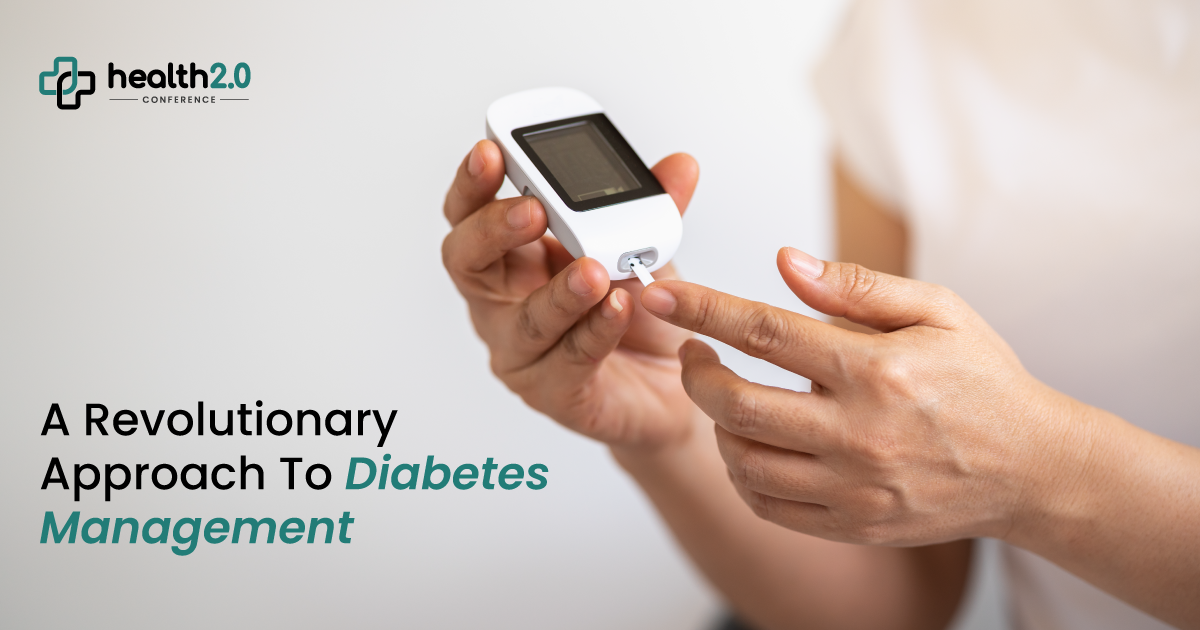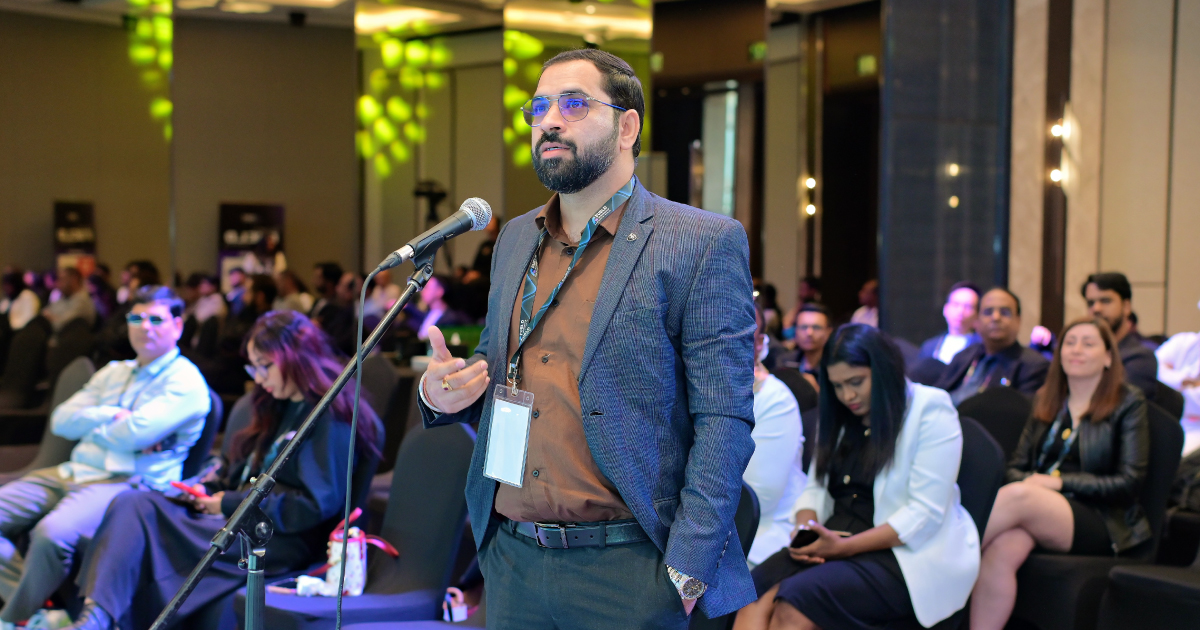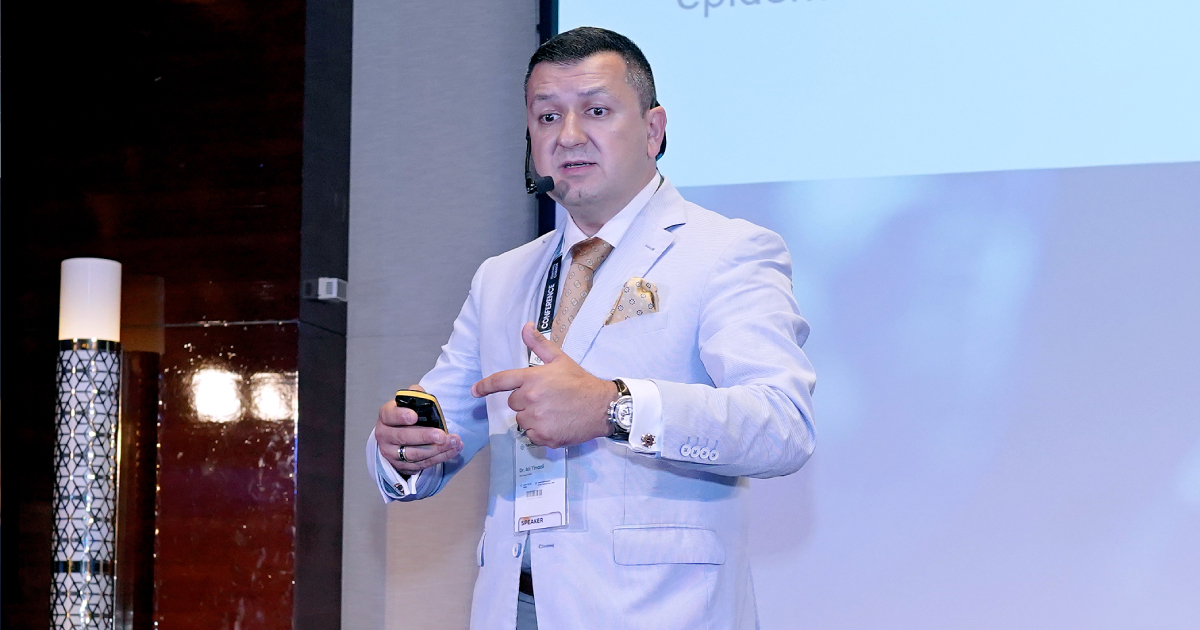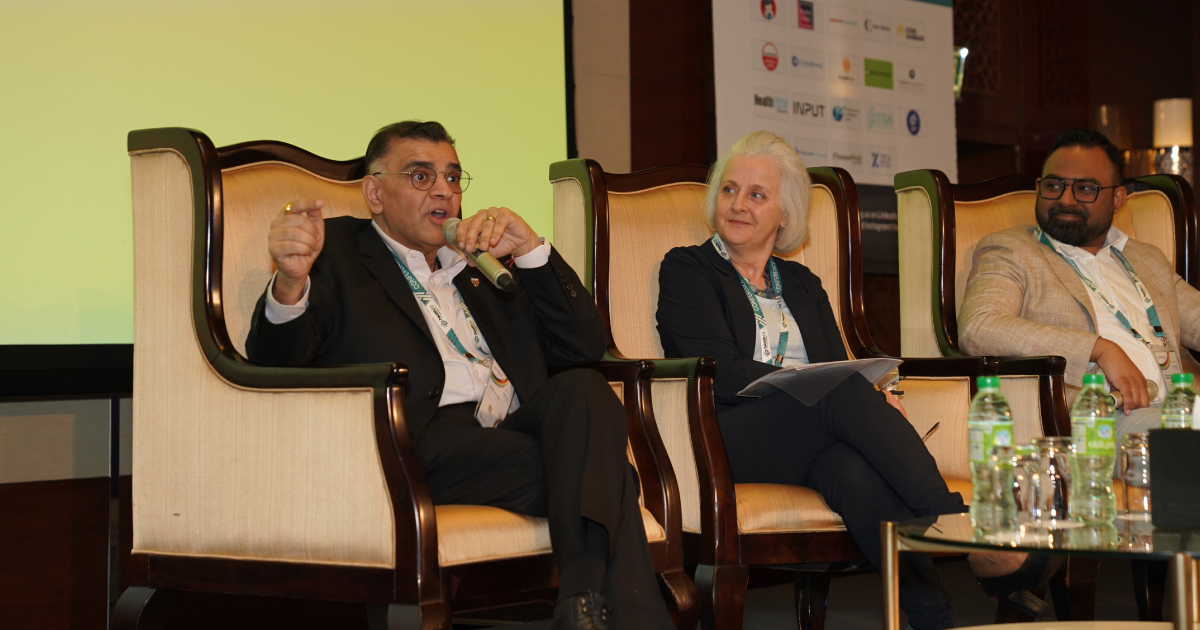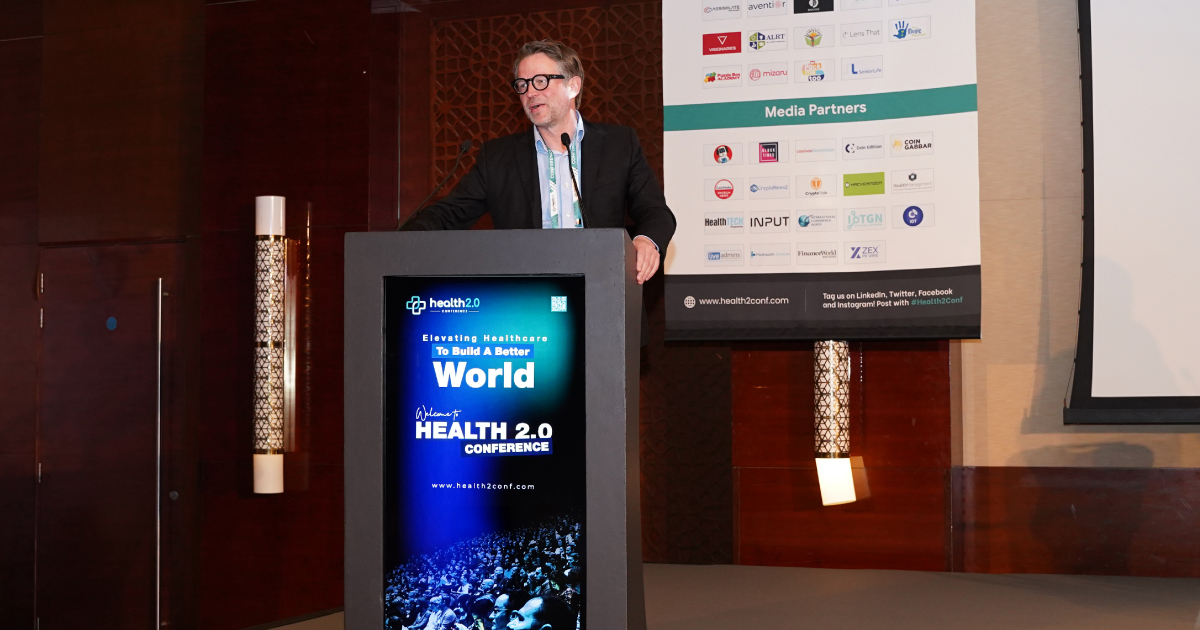In a world where health and technology intersect, a brighter path emerges for those living with diabetes. Every day, millions of individuals face the challenge of managing their blood glucose levels, making countless decisions that impact their well-being. But now, a ray of hope shines through data-driven diabetes management, offering a beacon of empowerment in the face of this chronic condition.
Amidst the rise of tech-driven healthcare systems, experts at famous health events unite their expertise to create better management and care for patients. Medical professionals at Health 2.0 Conference also share some esteemed insights about the data-driven approach to Diabetes management. In this blog, we delve into the integration of cutting-edge technologies and data analytics for personalized treatment plans for Diabetes, and explore how it is optimizing outcomes and enhancing the quality of life for those managing Diabetes.
The Rise Of Data-Driven Diabetes Management
In recent years, the landscape of diabetes management has witnessed a profound transformation, fueled by the rising tide of data-driven approaches. As we delve into this revolutionary aspect of healthcare, it becomes evident that data holds the key to empowering both patients and healthcare professionals in their battle against diabetes.
Experts at top healthcare conferences believe that one of the primary drivers behind the rise of data-driven diabetes management is the exponential growth of digital health technologies. The advent of smartphones, wearable devices, and smart sensors has made it possible to collect vast amounts of health-related data, including blood glucose levels, physical activity, and dietary habits, with unprecedented ease. These data points, when analyzed intelligently, provide valuable insights into the complex interplay between lifestyle factors and diabetes outcomes.
Continuous Glucose Monitoring (CGM), discussed further in this write-up, is a prime example of a game-changing technology that has revolutionized diabetes management.
Furthermore, data-driven diabetes management also leverages the power of artificial intelligence (AI) and machine learning algorithms. These sophisticated technologies can analyze vast datasets to identify patterns, predict glucose fluctuations, and provide personalized treatment recommendations. According to a study in the Journal of Diabetes Science and Technology, AI algorithms demonstrated remarkable accuracy in predicting hypoglycemic and hyperglycemic events based on CGM data, heralding a new era of proactive diabetes care.
Smart healthcare conferences today have reported that the rise of data-driven diabetes management has not only transformed patient care but has also led to significant advancements in diabetes research. Large-scale data repositories, such as electronic health records and national diabetes registries, enable researchers to gain valuable insights into the epidemiology of diabetes, identify risk factors, and evaluate the effectiveness of various interventions.
Harnessing Technology For Personalized Care
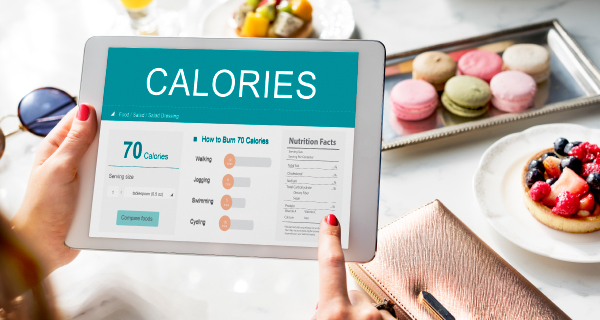
As we have covered, In the quest for better diabetes management, technology emerges as a formidable ally, ushering in a new era of personalized care for individuals battling this chronic condition. By harnessing the power of advanced technologies, healthcare providers can now tailor treatment plans and support to meet the unique needs of each patient, leading to improved outcomes and enhanced quality of life. Let’s explore some tech-driven Diabetes management systems that healthcare experts at Health 2.0 Conference discuss in great detail.
- Insulin Pumps:
Smart insulin pumps deliver precise insulin doses based on real-time glucose data from CGM systems. These devices offer more flexibility and control over insulin administration, allowing for personalized insulin therapy to match individual needs.
- Diabetes Management Apps:
Mobile applications designed for diabetes management offer a wide range of features, including glucose tracking, meal planning, medication reminders, and exercise monitoring. Patients can track their progress, set goals, and receive personalized insights to support their self-management efforts.
- Telemedicine and Remote Patient Monitoring:
Telemedicine platforms facilitate virtual consultations, enabling healthcare providers to remotely assess patients' progress, address concerns, and adjust treatment plans. Remote patient monitoring devices, such as Bluetooth-enabled glucometers, transmit data to healthcare providers for real-time monitoring and intervention.
- Genetic Testing and Pharmacogenomics:
Precision medicine techniques analyze a patient's genetic profile to predict how they may respond to specific medications. By tailoring treatment options based on genetic insights, healthcare providers can optimize the effectiveness and safety of diabetes therapies.
- Virtual Diabetes Education Programs:
Online educational platforms provide comprehensive diabetes education to patients, empowering them with knowledge on self-management, nutrition, and lifestyle modifications. These virtual programs cater to individual needs, fostering an empowered and educated patient community.
- Internet of Things (IoT) Devices:
IoT technology enables seamless integration between various devices, such as glucose meters, insulin pens, and smart scales. These interconnected devices share data, providing a comprehensive view of a patient's health and simplifying diabetes management.
- Smart Insulin Pens:
These high-tech devices digitally record insulin doses and timestamps, enabling patients and healthcare providers to track insulin usage and adherence.
- Mobile-Connected Smartwatches:
Smartwatches equipped with health monitoring features can track physical activity, heart rate, and glucose levels, providing users with personalized health insights and encouraging an active lifestyle.
Top healthcare conferences suggest that by incorporating these tech-driven diabetes management tools into personalized care plans, patients are empowered to take a proactive role in their health, while healthcare providers offer targeted support and treatment interventions.
Unraveling The Power Of Continuous Glucose Monitoring (CGM)
Continuous Glucose Monitoring (CGM) has projected a modern approach to tracking blood glucose levels, offering real-time insights that empower both patients and healthcare providers like never before.
Imagine a small device, discreetly placed on the body, continuously measuring glucose levels throughout the day and night. That's exactly what CGM does. Gone are the days of pricking fingers multiple times a day; CGM provides a continuous stream of data, giving a comprehensive view of glucose patterns and trends.
With this powerful tool, patients can gain a deeper understanding of their body's response to food, exercise, and medication. By identifying glucose fluctuations promptly, patients can adjust their insulin doses or make lifestyle changes to maintain stable blood sugar levels. Studies have shown that CGM use leads to a significant reduction in HbA1c levels, helping patients achieve better glycemic control and lowering their risk of long-term complications.
Smart healthcare conferences in 2023 believe that healthcare providers, too, benefit immensely from CGM data. They can remotely monitor their patients' glucose levels, detect potential issues early, and make data-driven decisions to optimize treatment plans. This level of real-time information enables personalized care, tailored to each patient's unique needs, resulting in more effective management and reduced hospitalization rates.
The impact of CGM extends beyond everyday management. It also empowers individuals with diabetes to lead more fulfilling lives. With the confidence that comes from understanding their body's responses, patients can engage in activities they might have hesitated to pursue before.
Embracing Artificial Intelligence In Diabetes Management
In addition to predictive analytics, AI-driven decision support systems assist healthcare providers in optimizing treatment plans. By considering individual patient characteristics, lifestyle factors, and medical history, these intelligent systems recommend tailored interventions, leading to improved glycemic control and reduced risk of diabetes-related complications.
Moreover, AI-powered chatbots and virtual assistants are enhancing patient engagement and education. These interactive tools provide personalized guidance on medication adherence, dietary choices, and lifestyle modifications, empowering patients to take an active role in their self-management journey. Studies have shown that AI-based interventions result in better treatment adherence and patient satisfaction.
Empowering Patients Through Data Literacy And Self-Management
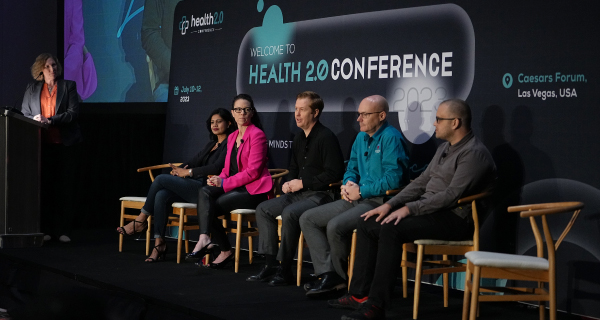
Top healthcare conferences agree that In the pursuit of optimal diabetes management, empowering patients with data literacy and self-management skills becomes paramount. Data literacy plays a crucial role in helping patients understand their blood glucose patterns and the impact of lifestyle choices. Healthcare providers can explain data trends, empowering patients to recognize triggers that affect their glucose levels positively or negatively. This knowledge fosters a sense of ownership over their health, allowing patients to make proactive adjustments to their diet, exercise, and medication regimen.
Self-management also involves patient engagement in treatment planning and decision-making. By collaborating with healthcare providers and actively participating in goal setting, patients become partners in their care. This approach not only improves patient satisfaction but also leads to better treatment adherence and long-term health outcomes.
How Are Such Tools Making Lives Better For Diabetes Patients?
Medical experts at smart healthcare conferences share some direct outcomes of data-driven healthcare delivery in Diabetes patients. These include the following.
- Proactive Interventions: Data-driven diabetes management enables healthcare providers to identify potential issues early and intervene promptly. Predictive analytics assist in foreseeing glucose fluctuations, allowing for timely adjustments to treatment plans.
- Virtual Care and Accessibility: Telemedicine platforms and remote monitoring devices make diabetes care more accessible, especially for patients in remote or underserved areas. Virtual consultations facilitate regular check-ins, leading to improved patient engagement and treatment adherence.
- Patient-Centered Care: By embracing data-driven approaches, healthcare providers can tailor their services to meet patients' unique needs and preferences. This patient-centered approach fosters trust and collaboration, enhancing the patient-provider relationship
Role Of Health 2.0 Conference In Facilitating Better Treatment
In the age of data-driven healthcare, we stand witness to a revolutionary approach to diabetes management, one that empowers patients and healthcare providers alike. As we embrace this empowering vision, health events and top healthcare conferences like the Health 2.0 Conference play a crucial role in promoting diabetes management and awareness, fostering collaboration, and propelling the field forward. Together, we forge a path towards a brighter, healthier future for all, inspired by the possibilities that data-driven empowerment offers.



